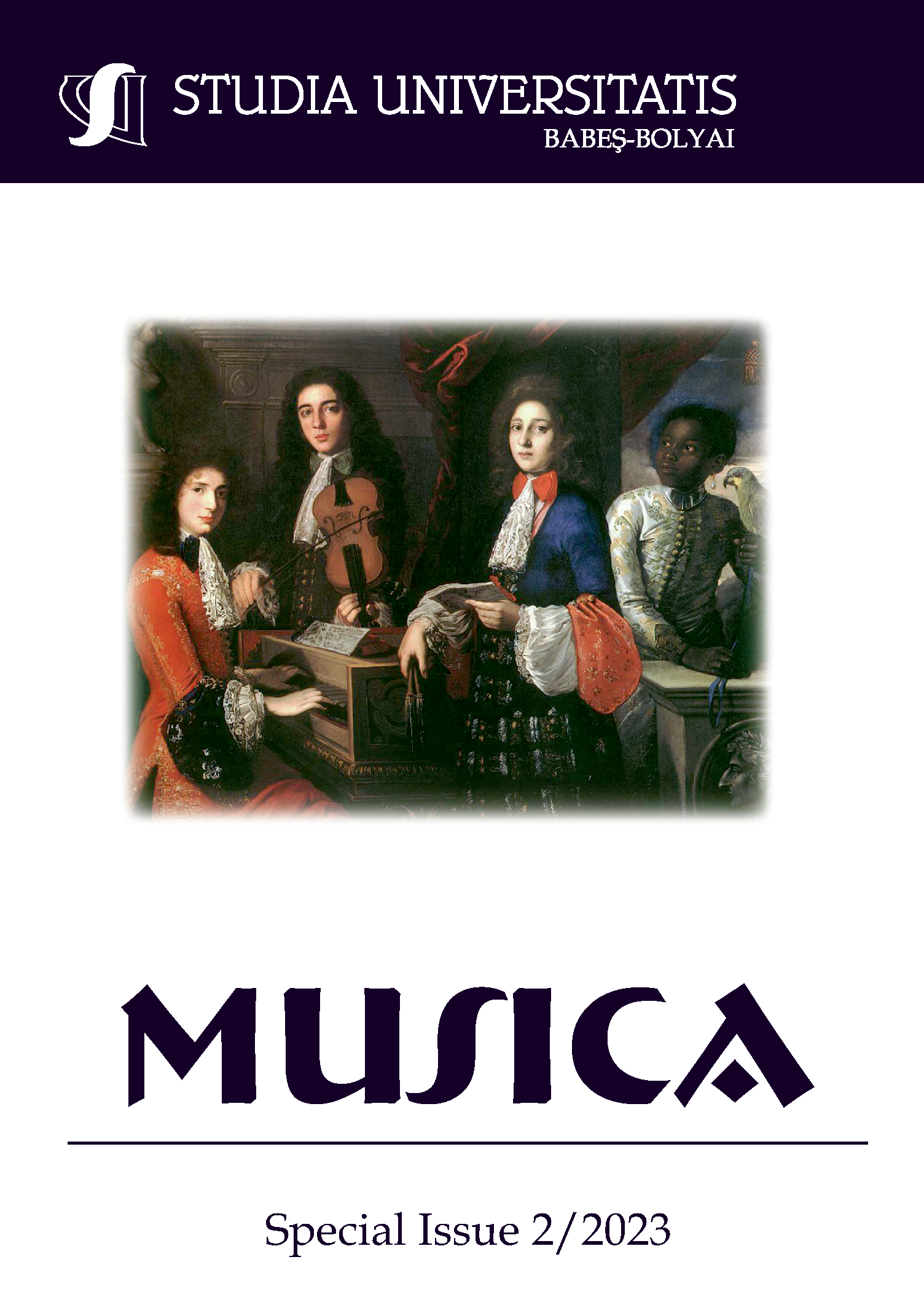HIDE-AND-SEEK BETWEEN THE SERIAL AND THE MODAL IN ANATOL VIERU’S CONCERTI
DOI:
https://doi.org/10.24193/subbmusica.2023.spiss2.04Keywords:
Anatol Vieru, Serialism, Serial, Modes, ConcertiAbstract
After first employing the 12-tone serialism, Anatol Vieru turned to folklore for inspiration and then wrote works based on artificial modes. I was interested in the possible correlations between these periods of his oeuvre. More precisely, I wished to analyze Vieru’s concerti as to their use of 12-tone structures and the relations they establish with non-serial configurations. I noticed that, even if he uses the chromatic total and respects the rules of serialism only in a first stage, Vieru very much kept in contact with it, albeit by converting it from a point of departure to a destination, the direction of a route seeming to often coincide with the obtaining of the chromatic total or with an asymptotic aspiration towards it. An interesting intersection is thus created, where the modal takes over the serial while the latter will still discreetly remain woven into the former.
References
Lerdahl, Fred. “Cognitive Constrains on Compositional Systems” (1988). Contemporary Music Review no.6, part 2, 1992, pp. 97-121.
Ruwet, Nicolas. “Contradictions du langage sériel” („Contradictions of the Serial Language”). Revue Belge de Musicologie, 1959, vol. 13, no. 1/4, pp. 83-97.
Vieru, Anatol. Cartea modurilor (The Book of Modes), Bucharest: Editura Muzicală, 1980.
Vieru, Anatol. The Book of Modes, Bucharest: Editura Muzicală, 1993.
Downloads
Published
How to Cite
Issue
Section
License
Copyright (c) 2023 Studia Universitatis Babeș-Bolyai Musica

This work is licensed under a Creative Commons Attribution-NonCommercial-NoDerivatives 4.0 International License.



